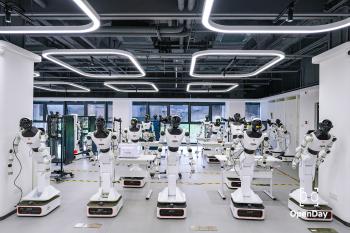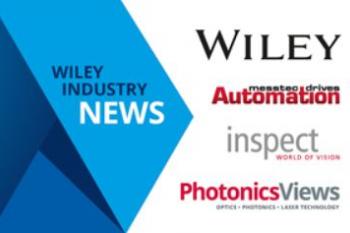New partnership for ultrashort-pulse lasers
08.10.2024 - LZH and the Ferdinand-Braun-Institute are jointly researching electrically pumped semiconductor disk lasers.
Surface-emitting semiconductor lasers are particularly suitable for developing lasers with customized wavelengths. Until now, optically pumped systems have been used to achieve high power levels. However, these are very complex to assemble. Electrically pumped systems, on the other hand, can only be realized with small emitting areas and therefore low power in the fundamental mode. This limits their application, for example in the field of material processing.
The researchers in the “ED-VECSEL” project aim to realize electrically pumped systems emitting in the fundamental mode with ultrashort pulses of high power and simple assembly. To achieve this, they will investigate the feasibility of a system consisting of an electrically pumped semiconductor structure with a large emission surface and a matching resonator with, if possible, only a single additional optical component (resonator output coupler). As part of the project, the LZH is responsible for the investigation and integration of an optimized electrically pumped semiconductor chip into an USP laser system.
The project – Electrically pumped semiconductor disk laser for ultrashort pulse generation (ED-VECSEL) – is funded by the Federal Ministry of Education and Research as a scientific preproject to investigate research questions with regard to future industrial applications in photonics and quantum technology and to build a bridge between basic research and industry-led collaborative funding. (Source: LZH)
Contact
Ferdinand-Braun-Institut, Leibniz-Institut für Höchstfrequenztechnik
Gustav-Kirchhoff-Str. 4
12489 Berlin
Germany
+49 30 63922-600







